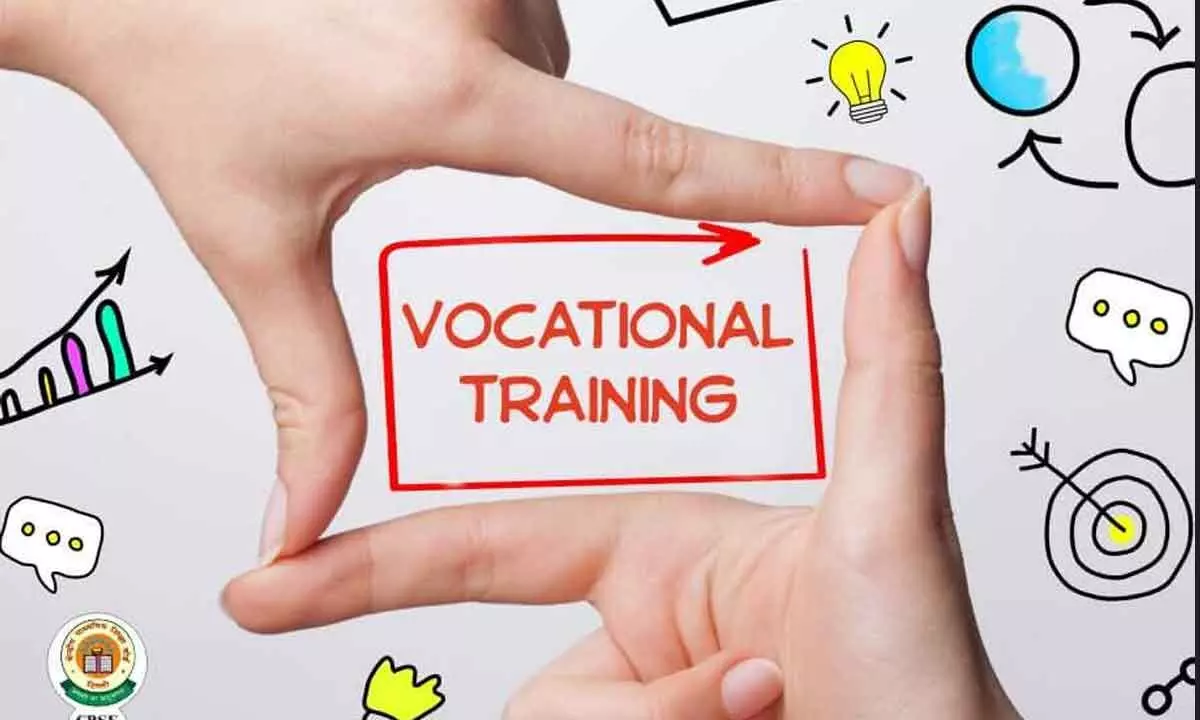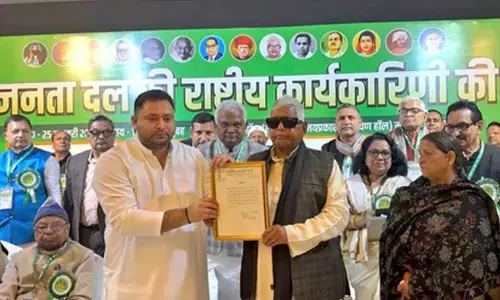Vocational training initiatives in higher education

India stands at the cusp of a significant transformation, seeking to propel its economy and address the ever-evolving requirements of a dynamic global market. Central to this endeavor lies the crucial necessity for a proficient workforce equipped to navigate the challenges and opportunities of the 21st century. The integration of vocational training initiatives into higher education has emerged as a pivotal strategy to cultivate a workforce that harmonizes with industry demands, consequently fostering economic growth.
The shift in educational paradigm
India's educational system has long prioritized rote learning and theoretical knowledge, often neglecting the practical application of skills. Nonetheless, the burgeoning importance of vocational training initiatives marks a fundamental shift. It underscores the importance of hands-on learning, practical skills development, and the acquisition of industry-relevant knowledge.
Fostering education in line with industry requirements
Vocational training initiatives aim to bridge the gap between academic knowledge and industry prerequisites. Collaborations between educational establishments and industries help tailor course curricula to fulfill the present and forthcoming needs of various sectors. By incorporating industry-specific skills and expertise, these programs ensure that graduates are well-prepared for employment, thereby augmenting their employability and value within the industry.
Diverse range of specializations
One of the strengths of vocational training in higher education lies in its versatility. These programs offer an array of specialized courses covering multiple sectors including IT, tourism, healthcare, manufacturing, agriculture, and beyond. The focus on these specialized areas ensures that students receive tailored instruction, enabling them to excel in their preferred fields upon concluding their education.
Fostering industry-academia collaboration
A key aspect driving the success of vocational training initiatives is the partnership between academia and industry. This partnership ensures that programs align with industry benchmarks and technological advancements. Industry experts provide valuable insights, and ensure that the students are equipped with essential skills to thrive in the professional landscape.
Integration into conventional education
Vocational training programs are no longer confined to standalone institutions, they have been seamlessly integrated into mainstream higher education. Universities and colleges now provide specialized vocational courses or incorporate vocational aspects into existing academic programs. This integration ensures that students pursuing traditional degrees acquire practical skills, fostering adaptability and versatility in their professional pursuits.
Government support and policies
Government policies strive to foster an ecosystem conducive to the growth and success of vocational training initiatives. India has made considerable progress in bolstering its skill development arena. The government has launched various programs fostering skill training and entrepreneurship, aimed at arming the workforce with pertinent skills for job market demands, thus fostering economic growth. Various schemes and policies pertaining to Skill Development in India are :
● National Policy for Skill Development and Entrepreneurship, 2015 - This policy aims to scale skill development swiftly and maintain high standards, aligning activities and linking skills to demand centers.
● National Education Policy 2020 - The National Education Policy 2020 recognizes the importance of Skill Development and emphasizes the integration of vocational education and training into mainstream education at all levels. It advocates dedicated modern vocational institutions and fosters student entrepreneurship via educational incubation centers for self-employment initiatives.
● National Skill Development Mission - The 2015 Union Cabinet-approved National Skill Development Mission aims to unify skill training across sectors and states. Its three-tier institutional setup—Governing Council, Steering Committee, Mission Directorate—ensures coordinated efforts. Seven sub-missions, including Institutional Training, Overseas Employment, and Infrastructure Leveraging, support the overarching objectives.
● Pradhan Mantri Kaushal Vikas Yojana (PMKVY) - PMKVY, the flagship scheme by MSDE and NSDC, aims to skill Indian youth for better livelihoods. It includes Short-Term Training, Recognition of Prior Learning, and Special Projects, focusing on industry-relevant skills. PMKVY 4.0, a part of Union Budget 2023-24, emphasizes industry alignment, on-job training, and new-age courses for Industry 4.0. Emphasizing on-job training, industry alignment, and new-age courses for Industry 4.0, encompassing coding, AI, robotics, mechatronics, IoT, 3D printing, and soft skills.
● Pradhan Mantri Kaushal Kendra (PMKK) - MSDE's Pradhan Mantri Kaushal Kendra (PMKK) establishes model training centers in each district, ensuring quality infrastructure for industry-driven skill courses. PMKK envisions sustainable training ecosystems, complementing PMKVY delivery.
● Jan Shikshan Sansthan (JSS) - Jan Shikshan Sansthans (JSS) are government-established autonomous institutions for vocational training and skill development, implemented nationwide through NGO networks. They aim to improve the occupational skills and technical knowledge of the non/neo literates and persons having a rudimentary level of education.
● National Apprenticeship Promotion Scheme (NAPS), 2016 - The National Apprenticeship Promotion Scheme supports establishments in apprenticeship training. It aims to promote apprenticeships, especially in MSMEs, by reimbursing 25% of stipends up to Rs. 1500/month per apprentice. Recently, under the Union Budget 2023-24, the rollout of Direct Benefit Transfer was announced to aid 47 lakh youths in three years.
● SANKALP - Skill Acquisition and Knowledge Awareness for Livelihood Promotion (“SANKALP”) is a Ministry of Skill Development program funded by the World Bank, enhances short-term skill training by bolstering institutions and fostering market connectivity, emphasizing marginalized community inclusion.
● Skill Loan Scheme - The Skill Loan Scheme offers institutional credit for Skill Development courses following National Occupations Standards, leading to NSQF-based certificates, diplomas, or degrees. This scheme extends to all Indian Banks' Association (IBA) member banks and other banks and financial institutions advised by the RBI. No collateral is required from the beneficiary under this scheme.
● Deen Dayal Upadhyaya – Grameen Kaushal Yojana (DDU-GKY) - Deen Dayal Upadhyaya – Grameen Kaushal Yojana (DDU-GKY), under NRLM, aims to diversify rural poor families' income and fulfill rural youths' career aspirations. It targets skilling impoverished rural youth for sustainable employment in demand-driven sectors using a 3-tier State-led implementation model in PPP mode.
● Creation of Indian Skill Development Services (ISDS) - The establishment of the Indian Skill Development Services (ISDS) caters to the Training Directorate of the Ministry of Skill Development and Entrepreneurship (MSDE) as a Group ‘A’ service. It aims to attract and integrate young talented administrators into the institutionalized Skill Development environment.
Effects and Obstacles
Vocational training initiatives in higher education exhibit diverse impacts. Graduates equipped with practical skills demonstrate heightened employability, thereby reducing unemployment levels and stimulating economic growth. Industries benefit from a skilled workforce, which further fosters productivity and competitiveness. However, challenges encompassing training quality, trainer availability, infrastructure limitations, and outdated curricula persist and need to be addressed for continual development.
(The author is Co-founder and CEO, Careerera )














